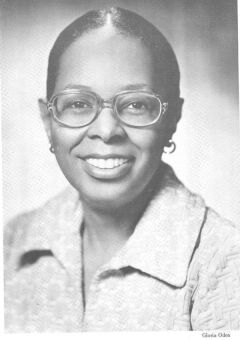The Resurrection Issue
Volume 14:3, Summer 2013
 HOMAGE
HOMAGE
I
Viewed from above, automobiles, lying
side by side, beneath mantles of snow,
replicate like oven-ready loaves
of bread, strangely anonymous, all
the same, engineered distinctions lost
Dead, we too, lose badges of earthly reality
measure but, unlike machines, possess
the favor of immortality.
Quickened, will we find mankind has learned
to live, at last, in brotherhood and peace?
II
Out of church-centered youth these thoughts arrive,
where it was I saw the Old Ones
who, when not confined to home or bed,
upon the steadying arms of white-gloved ushers
would inch, like snails, down the beribboned aisle
to those front seats reserved for their auspicious
joining in our fervent celebration
of the Christ Childs birth or crucifixion.
Not have I forgotten those men and women,
somewhat younger, although born into
freedom, were locked into their parents roles
of labor. They who, on Tuesday evenings,
assuredly as the lamplighter
made his dutiful neighborhood rounds, would
journey their long distance from Nepperhan,
climb Zions hill to renew their spirits
with song, shouts, in foot-stomping assembly.
The small child seeing, hearing, wary,
sensed that distress later to be learned
as history; sensed that corruption
foundation seed of mans nation-building
which debases necessary labor.
Its name unknown, without reason to question
the doctrinal message set out in
brightly-colored cards passed to all
at Sunday School whereher hair locked
in three tiny pigtails, wearing her tan
pongee dress with puff sleeves
she swung her shiny patent-leather shoes
singing Jesus loves me this I know
III
Snow thickens. Details diminish; blur.
Not, though, of childhoods heroines
clad in Girl Scout-green who, by ferry
herded the girls of Troop 16
across mornings glittering brush of
the Hudson, up a blue-scented trail
to the grove where, after spirited
play, the shrill insistence of a whistle
summoned all to gather roung; rest;
eat what each had brought from home and sip,
from pleated paper cups, the punch these
Elishas of foresight had prepared in mason
and mayonnaise jars. Prayer. Then, by twos,
march back to the ferry landing
shouting out those hymns that concluded
Sundays service. Once home, to fall
quickly asleep without thought of
the next day of their elders and its fare
of habitual insult, abuse, scorn.
IV
Under this steady hammering of snow
the landscape disintegrates. So
spirits burdened by names flung in
repeated assault. Who comes to mind are sons,
fathers, brothers, uncles, victims of language
blind to their status as citizens,
church members who led congregations
in prayer, sang in choirs, superintended
collecting, from velvet-bottomed pewter
plates, the tiny sums of weekly tithe.
The small child did not know Zions churchmen
as she did two older brothersthe elder,
egg-yolk yellow, the younger, muscadine.
One taller than the other; each
more than their six-foot fathermusical,
as he was nothubs of comradery,
affection during high-school years but
in the larger world experienced
such opposite receptions he, whose wine-dark
cheeks blossomed rose in winter, forsook
his happy mien for one intensely sober.
V
Steadily downward streams the snow. Balm
to earths forlorn, wounded places. So
death, for some, might seem remedy:
the Old Ones, whose parents snatched from births
fertile familiar for unrewarding labor
in foreign fields; likewise historys Others
world-wide hostages to brute capitalism.
The grave, universally, has offered
itself as refuge. Its solace, the loud quiet
when snow settled across the land. Even
He, scourged, then hung out to dry,
took two days in sanctuary before
returning to learn how the world had not
changed. Did not doubters come seeking
to finger where the nails had pushed through;
to see where the spear had slit his side?
In a cloud, a fog of disbelief
at mans deep fellowship with darkness,
He departed. His gift of lifepower
over deathstill has not deterred
mankind from that ugly intimacy.
The Old Ones might disagree, equating
Lincoln with Cyrus, knowing their children free
as became the Israelitesresponsible
only to God for the life each makes.
VI
Snow has simplified the landscape. Onus
of difference has been erased. Has this
blizzard been a gift of grace or mercy?
Gloria Oden (October 30, 1923—February 2012) earned a BA in 1944 and a JD in 1948 from Howard University. She never practiced law, instead working for the Federal government before moving to New York City in 1951 to work for the National Infantile Paralysis Foundation. From 1961 to 1978, Oden served in editorial positions for academic journals such as the American Journal of Physics, and the journal of the Institute of Electrical and Electronics Engineers. She returned to the region in 1971 to teach at the University of Maryland Baltimore County, where she remained until her retirement in 1996. Oden's books of poetry are The Naked Frame: A Love Poem and Sonnets (1952), Resurrections (1979), The Ties that Bind (1980), Appearances (2003), and the limited-edition chapbook Homage (2011), reprinted in its entirety here. Oden wrote that Homage was "a rumination on early families of the first decade of the twentieth century who, following in the hopes of their forbears, labored to have their children enjoy the rights and privileges of this new Jerusalem, the United States." To read more about this author: "Smoke in a House on Fire: A Profile of Gloria Oden" by Julia A. Galbus